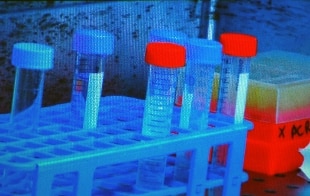Share
April 02, 2020 The vaccine against the Covid-19 virus may be available sooner than expected. The researchers of the University of Pittsburgh School of Medicine coordinated by the Italian Andrea Gambotto and Louis Falo announced it today.A vaccine has already passed the animal testing phase and the first tests in the mouse model have shown that it produces specific antibodies for the new SARS-CoV-2 coronavirus in quantities deemed sufficient to neutralize the virus. The results of these first tests have been published in EBioMedicine, a magazine published by Lancet. This is the first study to be published following review by scientists from other institutes and describes a potential vaccine against COVID-19.
The researchers were able to act quickly as the foundations had already been laid thanks to previous work during previous coronavirus epidemics. The University of Pittsburgh operates in Italy through UPMCl which works in close collaboration with the University of Pittsburgh School of the Health Science and which has been present in Italy for twenty years and in particular in Palermo, with IRCCS ISMETT, Mediterranean Institute for Transplants and Highly Specialized Therapies, today ISMETT has created a COVID-19 unit available to the Sicilian Region. "We worked in the past with the SARS-CoV epidemic in 2003 and MERSCoV in 2014. These two viruses, closely related to SARS-CoV-2, teach us that a particular protein, called spike, is important for inducing the Immunity against the virus. We knew exactly where to fight this new virus, "explained Andrea Gambotto, senior coauthor - already working for the Department of Molecular Genetics and Biochemistry at the University of Pittsburgh - who has always been involved in vaccine research.
"That's why funding vaccine research is important. You never know where the next pandemic will come from." "Our ability to rapidly develop this vaccine is the result of collaboration between scientists with skills in different research areas working with a common goal," continued Louis Falo, MD, Ph.D., senior coauthor and professor and director of the Department of Dermatology of the University of Pittsburgh and UPMC. Compared to the other potential experimental vaccine with mRNA on which clinical trials have just started, the vaccine studied at the University of Pittsburgh, which the authors christened PittCoVacc, short for Pittsburgh CoronaVirus Vaccine, follows a more consolidated approach, using fragments of viral proteins created in the laboratory capable of developing immunity. Current flu vaccines work similarly. The researchers also used an innovative approach to deliver the vaccine based on the use of a micro-needle vector, which increases its potency. It is a patch the size of a fingertip with 400 tiny needles that administer fragments of the spike protein through the skin, where the immune reaction is stronger.
The device is used as a normal patch and the micro-needles, made entirely of glucose and protein fragments, dissolve in the epidermis. "We based ourselves on the skin scarification method originally used to administer the vaccine, but using a more efficient and reproducible high-tech version from patient to patient," said Falo. "And it's also quite painless, more or less like the feel of the velcro on the skin."
The system is also highly scalable. The protein fragments are made from a cell factory with layers upon layers of cultured cells designed to express the SARS-CoV-2 spike protein and which can be further stacked to multiply the yield. Protein purification can also be carried out on an industrial scale. Serial production of micro-needles involves mixing proteins and sugars in molds using a centrifuge. Once produced, the vaccine can remain at room temperature until it is used, eliminating the need for refrigeration during transport or storage. "For most vaccines, it is not initially necessary to address the issue of scalability," explained Gambotto, "but when trying to rapidly develop a pandemic vaccine, this is the first necessary condition."
After being tested on mouse models, it was noted that PittCoVacc generated a large amount of antibodies against SARS-CoV-2, and it all happened within two weeks of applying the patch. Animal models have not yet been assessed over the long term, but the researchers point out that the mice that received the MERS-CoV vaccine have produced a sufficient level of antibodies to neutralize the virus for at least a year, and so far antibody levels in models vaccinated against SARS-CoV-2 appear to follow the same pattern. It is important to underline how the vaccine with micro-needle patch against SARS-CoV-2 maintains its power even after sterilization with gamma rays, a fundamental step towards the creation of a product suitable for use in humans. The authors submitted their application for approval of a new experimental drug (IND) to the Food and Drug Administration in anticipation of starting a phase I clinical trial in humans in the coming months. "Clinical tests on patients typically take at least a year and probably longer," said Falo, "the particular situation we are experiencing is new and unprecedented, so we don't know how long the clinical development process will take. recent revisions to normal trials suggest the possibility of rapid progress. "

